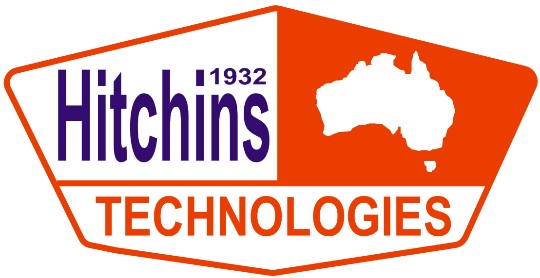My Business Transition Experiences
(And why I can bring real world experience to guide you to a better result.)
Experience 1
The family business built up over 30 years and the founder when getting near 70 wanted to retire.
It was a development, manufacturing and marketing business that operated in 12 countries and with around 100 staff. Operating in the broad building industry and prided itself on a range of performance solutions to common building problems. Well respected in its field of endeavor.
The owner, along with the chef accountant in secret figured out how much the business was worth and made a take or leave it offer to the directors. The directors with few options signed up. However, in a dynamic world and without any ability to really understand the situation, were bulldozed into a soon to fail arrangement. Within a few years the various divisions were repackaged and sold to the local directors in each region. Some regions succeeded and some failed. The loss of cohesion between various former groupings of manufacturing and marketing etc, fast tracked some of the failures.
Lessons Learnt
Pros
- Very good idea to sell to the people who were running the businesses and had a good understanding of their areas.
- Would have allowed the business to keep together and continue to grow and develop.
Cons
- No advance notice of the owners’ intentions or time frames.
- A take it or leave it agreement presented with a 24-hour window to agree or not.
- It failed and the owner lost probably 50% of the real value originally expected.

Experience 2
The owners (2) discovered a rundown small restaurant and winery with vineyard attached about 30 km outside of a major city in an old wine producing area. The attraction was the winery architecture, the closeness to the city and the general setting. The owners were not chefs or previous food business owners.
After substantial refurbishment and fit out the restaurant had 100 covers in a large open, former wine production area. The site and buildings were very attractive.
A hi-end a la carte restaurant ensued. The setting drew good clientele and a well-respected chef from the city set the standard.
It was not long before it started getting wedding enquiries followed by bookings. Good business but this started to take over much of the weekend in the season. This meant the restaurant was turning away the established a la cart clients.
A choice needed to be made, either a restaurant or a wedding venue. The wedding venue won, and the chef needed help to handle the bookings, so his partner took over this aspect as a full-time position, a wedding planner and arranger.
The original owners did not want to continue in this mode though it was the right choice business wise.
They then offered it to the chef and partner, however though very enthusiastic, were not financial enough to buy it.
So, a modest deposit was provided and the balance to be paid off (interest free) over 2 – 3 years. If they failed payments, then the original owners could take it back.
Lessons Learnt
Pros
- Though the business was established with a certain focus a better version was there. So, this was a brighter future.
- The owners did not wish to be in such a business and wanted to sell. They realised the new chef and partner had great experience and enthusiasm for a more profitable business.
- So, the owners got the price they wanted, the new owners got a business with a huge upside.
Cons
- Changing the business focus is a risk and the new owners may fail. Leading to a complex situation. But it did not happen.
It’s still a great wedding venue even now, 20 years later.

Experience 3
A mid-sized manufacturing and distribution business in a large city with around 12 employees. Built from nothing by the owner and his wife over a 30-year period, they offered a range of good value, competitively priced products to the building industry. Several larger public companies in the same industry curtailed further growth, but it was a profitable enterprise non the less.
The family was keen to sell, and though the prime owner was very reluctant, after around 10 years of reminders, decided to when he was early 70’s.
The staff were not told but the lack of ongoing product and marketing development and building maintenance soon had the gossip in full swing. So much so that customers were asking us what was going on.
After a year of marketing and negotiation via a broker, the business was sold to a non-related party. The new owners moved in, with initial ideas of keeping the status quo. They soon had very different plans and in a matter of a year or so the business was much smaller and with a different culture in a new location. They probably lost 30 – 50% of the former business sales and half the customers.
Sadly, the original owner never got to enjoy the results of 30 years of hard slog, dying within 2 years of the sale.
Lessons Learnt
Pros
- The well-respected business was attractive, and the price gained was good.
Cons
- The business owner would have been better off advising staff of his plans to prevent gossip getting out of control to the detriment of sales. (which did impact on the new owners)
- The new owners had a very different business model; however, this can happen.
- When the selling owner with all the knowledge is not given a chance to maintain the knowledge, culture and integrity, the change can be detrimental to the new business owners.
- Don’t wait until you are too old to enjoy your retirement life you have dreamed of for years.

Experience 4
Here we are looking at a business with only 2 partners and no other staff. It’s a marketing and distribution business with just one product, mostly in the home improvement sector.
The originating partner (10 years older than the other) set the business up. It grew quite quickly being in a niche market with a good product and great service, as it’s modius operandi.
After 10 years, the original partner wanted to ease out and travel. Being in his early 60’s and this was then wrapped up with a buyout plan over 10 years. The older partner was available as needed for technical support and to cover the other partner’s holidays etc.
This has continued and the 10-year buy-out partnership has nearly been completed. And the relationship and backup will continue for another few years, as needed.
Pros
- Having a working relationship with the other director and then passing the reigns over, is much easier and worked well for both partners.
- The value of the business was agreed between the 2, as they both had a good understanding by being directors.
- The seller partner still maintained a valuable interest in the business and was in their best interest to make sure it continued to succeed.
- The customers knew about the changes and have not had any issues.
- The selling partner has been able to enjoy the lifestyle sort, while still young enough to do so.
Cons
- Hard to find any.

Experience 5
(This is a good friend’s business)
This is a single owner business in marketing & promotion that operated in a tourist city of 500,000. So, there was an established cliental and the owner was gifted and always looking for new ideas and technology.
After a decade of success, retirement and health issues encouraged the sale of business and retirement.
This happened and the new owner, who had not been in the industry and had no contacts in the area, took over.
The previous owner provided substantial support and follow-up to get the new owner up to speed as quickly as possible.
However, within a few years, the business was struggling and though they introduced new ideas and technology to develop better products, it was soon closed down.
Pros
- The business was successful and had a great client base and the handover and support were extensive over a period of time.
- The value achieved by the seller was fair and reasonable.
Cons
- The timing of the sale was due to age and retirement issues, not market conditions.
- The new owner thought they bought in new ideas and technology, their clients soon found they could do much or all of the work in house, through cheaper technology.
Lessons learned: In many instances ongoing technologies and improvements may mean the original business methodology is no longer unique or cost effective and the business may soon disappear. So, if you are in an industry with advancing technology, think carefully about its future. As an example, AI (Artificial Intelligence) is making inroads into many areas. Will this affect the value of your business?

Checkout Best Features
In Small Business Guidance.
Diverse Approach
With experiences in different business types and markets, I am well versed in what you are seeking.
Expert Advice
My experience levels and interactions with other small business owners will only benefit you.
Professional Team
I can bring to your table other professionals as needed.
Result Based
Having achieved personal successes and seen failures, I will guide you to the best outcomes.
